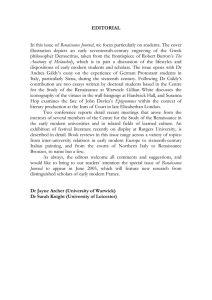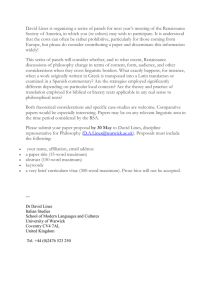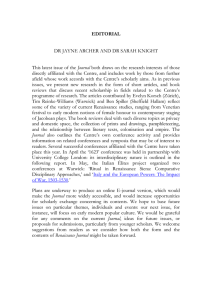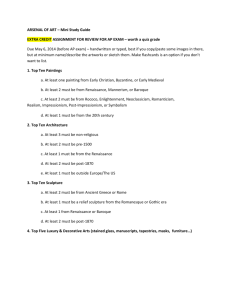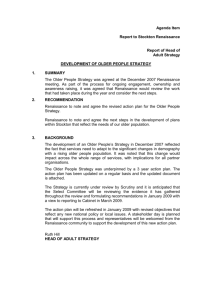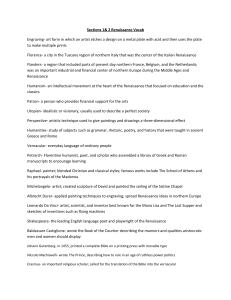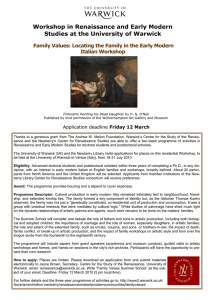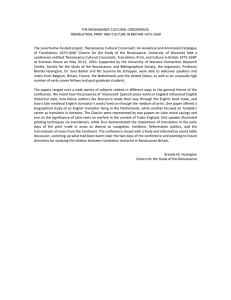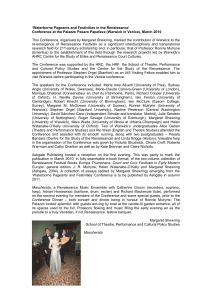Arriving in the Renaissance
advertisement
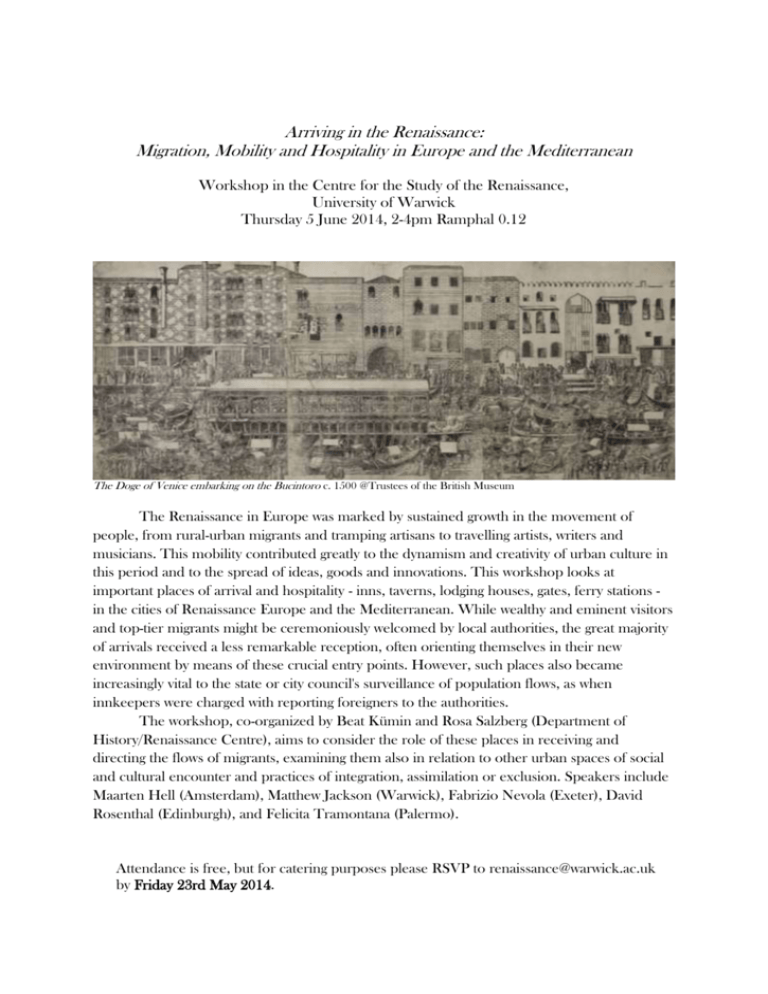
Arriving in the Renaissance: Migration, Mobility and Hospitality in Europe and the Mediterranean Workshop in the Centre for the Study of the Renaissance, University of Warwick Thursday 5 June 2014, 2-4pm Ramphal 0.12 The Doge of Venice embarking on the Bucintoro c. 1500 @Trustees of the British Museum The Renaissance in Europe was marked by sustained growth in the movement of people, from rural-urban migrants and tramping artisans to travelling artists, writers and musicians. This mobility contributed greatly to the dynamism and creativity of urban culture in this period and to the spread of ideas, goods and innovations. This workshop looks at important places of arrival and hospitality - inns, taverns, lodging houses, gates, ferry stations in the cities of Renaissance Europe and the Mediterranean. While wealthy and eminent visitors and top-tier migrants might be ceremoniously welcomed by local authorities, the great majority of arrivals received a less remarkable reception, often orienting themselves in their new environment by means of these crucial entry points. However, such places also became increasingly vital to the state or city council's surveillance of population flows, as when innkeepers were charged with reporting foreigners to the authorities. The workshop, co-organized by Beat Kümin and Rosa Salzberg (Department of History/Renaissance Centre), aims to consider the role of these places in receiving and directing the flows of migrants, examining them also in relation to other urban spaces of social and cultural encounter and practices of integration, assimilation or exclusion. Speakers include Maarten Hell (Amsterdam), Matthew Jackson (Warwick), Fabrizio Nevola (Exeter), David Rosenthal (Edinburgh), and Felicita Tramontana (Palermo). Attendance is free, but for catering purposes please RSVP to renaissance@warwick.ac.uk by Friday 23rd May 2014.
